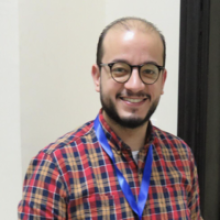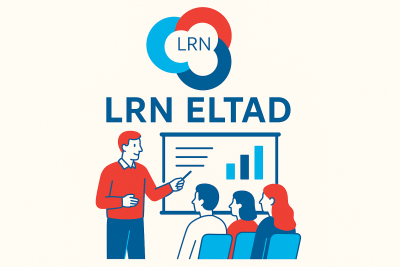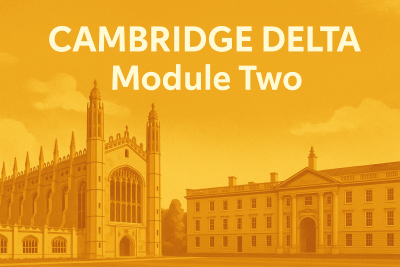Course Description
Advanced Diploma for Career Progression in English Language Teaching
The LRN ELTAD (English Language Teaching and Assessment Diploma) is a comprehensive, advanced-level qualification designed for experienced English language educators seeking to deepen their understanding of TESOL methodologies, curriculum design, and educational research. Ideal for teachers and trainers looking to progress into senior teaching roles, academic leadership, or teacher training, this diploma builds on knowledge gained at Level 5 and Level 6, guiding candidates toward excellence in English Language Teaching (ELT).
The qualification is structured around three mandatory units, each of which is assessed rigorously through assignments, teaching practice, and research. ELTAD is a recognised professional development pathway for English language educators who are ready to specialise, reflect, and lead in their field.
Unit One: Understanding Language, Methodology, and Resources for Teaching
Aim:
This unit explores the linguistic, methodological, and analytical foundations of teaching English across a variety of contexts. It focuses on enhancing the candidate’s language awareness, particularly with regard to how language is structured, used, and analysed in both spoken and written forms.
Candidates will explore:
-
The structure of English across text types
-
Approaches to language analysis for teaching
-
Strategies for personal linguistic development
-
Practical application of this knowledge to classroom instruction and learner support
Assessment:
-
Two externally set and marked written assignments (2,500 words each)
-
One Viva Voce (20-minute oral assessment)
Unit Two: Principles of English Language Teaching
Aim:
This unit delves into the theoretical and philosophical underpinnings of English language teaching, including:
-
Key theories of language and learning
-
Approaches and methods in TESOL
-
Concepts of curriculum design, syllabus planning, and materials development
-
Roles of teachers and learners, and models of classroom management
-
Processes for curriculum evaluation and renewal
It enables candidates to develop a critical and research-informed perspective on language education, empowering them to design and deliver high-quality learning experiences.
Assessment:
-
One externally set and marked assignment (3,000 words)
-
Teaching practice portfolio, including:
-
Video evidence of at least one externally assessed teaching session
-
Evidence of preparing, delivering, and reflecting on at least 10 lessons
-
Observations and evaluations of 20 hours of teaching/learning activity (including peer and self-reflection)
Unit Three: Research Report
Aim:
This unit develops the candidate’s ability to carry out formal academic research in TESOL. It introduces various research methodologies and analytical tools relevant to language education and allows the candidate to apply these methods to a real-world classroom or institutional context.
Candidates will:
-
Select a research topic relevant to their teaching context
-
Use appropriate methods to gather and analyse data
-
Present findings with clarity and critical insight
-
Reflect on the implications of their research for professional practice
Assessment:
Who is the ELTAD for?
This diploma is ideal for:
-
Practising English language teachers with Level 5 or Level 6 TESOL qualifications
-
Educators aiming to move into academic leadership, training, or curriculum development
-
Teachers seeking a structured pathway toward DELTA, DipTESOL, or postgraduate studies
-
ELT professionals wanting to formalise their experience and advance their careers globally
Key Benefits:
-
Comprehensive training in advanced TESOL concepts
-
Professional recognition and increased employability
-
Development of teaching, research, and leadership competencies
-
A strong bridge to further study or senior roles in ELT institutions
The LRN ELTAD equips educators with the confidence, knowledge, and credentials to excel in complex, multicultural, and dynamic English language teaching environments—inspiring learners and influencing educational quality at every level.









